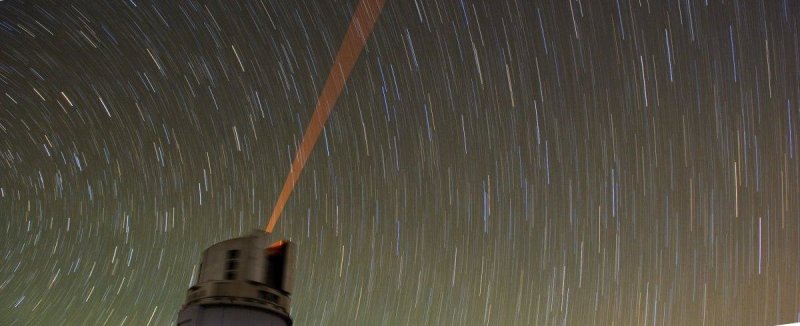If extraterrestrial life exists in our neck of the Milky Way, how would we make our presence known to one another? Could we just shoot a massive, unmistakable signal out into space?
As it turns out, this wild-sounding idea could actually be carried out with current and developing technologies. A new MIT study found that by shining a powerful laser through a gigantic telescope, humans could produce a beam of infrared radiation detectable from 20,000 light-years away.
…
But just because the technology technically exists or is in the works, doesn’t mean the project would be safe, easy, or even work. In order to shine through our thick atmosphere, the laser would need to be built in a high-altitude, easily-penetrable area, such as on top of a mountain.
And despite the beam being invisible to the naked eye, it would still emit 800 watts of power per square meter, which could cause vision damage if it’s looked at directly. It could also interfere with spacecraft cameras as they pass by the infrared signal.
Plus, there’s no guarantee that a neighboring planet would ever detect our monstrous beam. Assuming alien astronomers have comparable telescopes, they would need to be in the emission’s exact line of sight which, statistically speaking, is pretty unlikely.
Read full, original post: Infrared laser technology could attract aliens, but probably won’t































